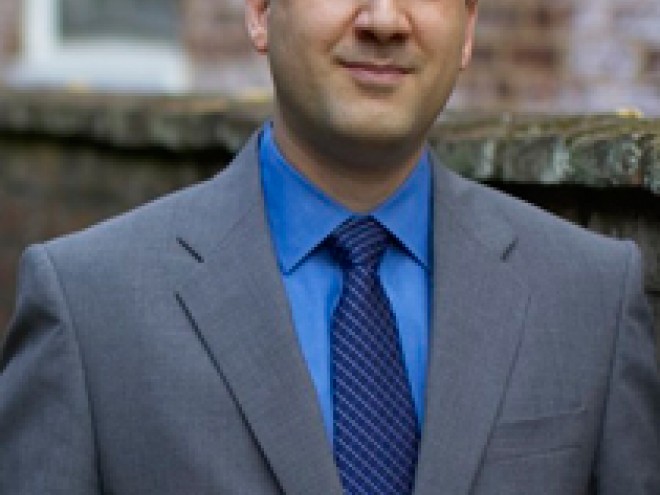In 1789, the French revolutionary Clermont-Tonnerre argued: “Refuse everything to the Jews as a nation, and accord everything to Jews as individuals. That idea entered international law when the United Nations adopted the Universal Declaration of Human Rights in 1948. Hannah Arendt, however, didn’t think that was a practical solution. “The restoration of human rights has been achieved so far only through the establishment of national rights,” she observed, referring to the State of Israel.
In a work of striking scholarship and originality, James Loeffler looks at the evolution over the last century of those two strategies – human rights based on the individual and on the nation – through the lenses of five Jews who were their leading advocates.With a keen sense of drama, he vividly captures the life and times of each subject, weaving their stories into a compelling chronicle of the past while also shedding light on present-day nationalist and human rights movements.
Jacob Robinson served on the U.N. Commission on Human Rights in 1947. A British expert on minority rights who had once been the leader of the Jewish caucus in the Lithuanian legislature, he always had doubts about the efficacy of an international “Bill of Rights.” He watched as the lofty ambitions of the Commission devolved into countries making speeches invoking human rights to justify their own actions, including massacres.
That Commission resulted partly from the work of Hersch Zvi Lauterpacht, author of An International Bill of Rights of Man. A Zionist leader in his youth, he witnessed repeated attacks on the Jewish minority in Poland. In the wake of World War II, he came to firmly believe that human rights meant nothing without the effective enforcement of those rights.
Robinson and Lauterpacht had both attended the San Francisco conference where the U.N. was founded – so too did the British liberal rabbi Maurice Perlzweig, a celebrity and Zionist who became the World Jewish Congress’s International Affairs Representative at the U.N. in 1949. In the ‘50s he fought for explicit recognition of the rights of Soviet Jews as a minority group.
The head of the non-Zionist American Jewish Committee, oil magnate Jacob Blaustein, held a contrary view. A confidant of Roosevelt and Truman, he staunchly advocated for individual rights over the rights of minorities. When Adolf Eichmann was captured by Israelis in 1960, he fiercely argued against singling out the Nazis’ Jewish victims in the trial.
Peter Benenson, a student of Maurice Perlzweig’s, also became an international leader in the campaign for universal human rights. Benenson had left Eton in order to organize the rescue of Jewish children from the Nazis. Later, he renounced Jewish advocacy, and Judaism itself, and founded Amnesty International on the principle of protecting the rights of individuals everywhere.
In our own time, Loeffler laments, the human rights movement has lost faith in political solutions, preferring to promote cosmopolitan solidarity. Robinson, Lauterpacht, Perlzweig, Blaustein, and Benenson, on the other hand, worked constantly with governments to protect human rights and Jewish rights.
Rooted Cosmopolitans is not only an important and remarkable book of history; it’s a timely reminder of the relationship between ideals and power.
Bob Goldfarb is President Emeritus of Jewish Creativity International.





